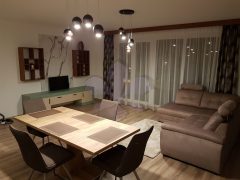The program series of the Debrecen Festive Games begins on Sunday, the opening event of which is the presentation of Mozart’s opera The Magic Flute, directed by Péter Gemza, at the Nagyerdei Open Air Theatre in Debrecen.
The events of the program series, which runs until August 15, will take place in addition to the Nagyerdei Open Air Theatre, in Kossuth tér, and as a new location, in the Csokonai Literary Laboratory.
The festival, now taking place for the second time, will be transformed into a series of all-arts programs this year, in addition to opera, theater and music, the audience will also be treated to musical literary and documentary evenings and children’s performances, the organizers said in a statement sent to MTI.
As they write, the focus of the 16-day festival is still music, theater and opera, and a bel canto master class is also organized for opera singers.
On August 2, folk dance and folk music evening entitled “Székely Night Without Borders” can be seen at the Nagyerdei Open Air Theatre, at which the Hargita National Székely Folk Ensemble and Pál István Szalonna and his Band will perform with their guests.
Within the framework of the Debrecen Festive Games, in cooperation with the Petőfi Cultural Agency and FókuszPont Productions Kft., the Hethátar Literature and Documentary Film Festival will be organized between August 2 and 11, which connects the Carpathians through the genres of literature, film and music -pool artists with the audience. Between August 2nd and 4th, documentary film screenings, audience meetings, and from August 7th literary and musical evenings, children’s programs await those interested in the Csokonai Literary Laboratory.
On August 8, Kossuth tér will also join the program series: the rock opera Mária Evangelium celebrating the 30th anniversary of László Tolcsvay, Péter Müller and Péter Müller Sziámi will be performed by LantArt Produkció, directed by Tamás Juronics, with the dancers of the Szeged Contemporary Ballet and the orchestra of the Győr National Theater and with the participation of his choir.
The concert show of the Kodály Philharmonic brings to mind the most famous works of Hungarian and Hungarian-born Hollywood filmmakers on the evening “Magyarok in Hollywood” on August 9 at the Nagyerdei Open Air Theatre.
This year, two renowned artists will celebrate their birthdays with a gala concert at the Debrecen Festive Games. On August 10, opera singer Andrea Rost will perform in several musical genres at her concert “Kerek világ” in the square in front of the Great Temple. And on August 11, Marika Oszvald will perform with her guests on the outdoor stage. At the operetta gala, the hits of Imre Kálmán, Ferenc Lehár, Jenő Huszka and Pál Ábrahám will be performed. At the birthday gala evening, the Kodály Philharmonic Debrecen will be conducted by László Makláry and Dániel Somogyi-Tóth.
At the festival, Coopera, the organizer of the event, pays tribute to the defining figure of Hungarian music, Zoltán Kodály, with a festive gala concert on the occasion of the 140th anniversary of his birth. On August 13, the concert “Tell me what you’re singing, I’ll tell you who you are” on Kossuth Square brings to life the important milestones and works of the composer’s career. Based on the ideas of director-choreographer Péter Novák, the performers of the gala evening will include Mester Viktória, Péter Balczó, and Lajos Kendi, the Kodály Philharmonic Orchestra, the Kodály Choir, the Lautitia Children’s Choir and the Debrecen Hajdú Dance Ensemble.
As part of this year’s Debrecen Festive Games, world-famous opera singers Dolora Zajick and Ramón Vargas hold a one-week bel canto master class for opera singers. The audience can hear popular opera arias and duets with the participation of the participants of the master class on August 14 under the title Summer Opera Hits.
At the end of the event, the Kodály Philharmonic Debrecen will give a concert together with opera singer Ramón Vargas on August 15th at Kossuth Square on the Night of the Classics. Antonín Dvorák’s IX will be performed in the first part of the concert. “Újvilág” symphony, followed by popular tenor arias from opera literature in the second half of the program.










